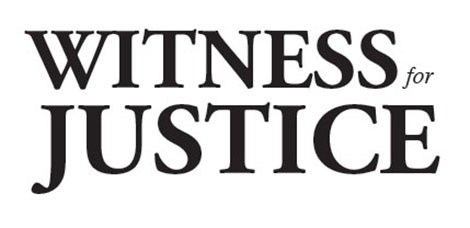Commentary: No Ban, No Raids, No Wall: Sanctuary for All
 “No ban, no raids, no wall.” This is the chant that was born out of the first Muslim and refugee ban on January 27th, when hundreds of thousands mobilized at airports throughout the country. We shouted this same chant in front of the White House and in the halls of Congress as it echoed off the U.S. Capitol marble. The resistance to harsh anti-human rights rhetoric has grown, even as the continual policy shifts of this administration overwhelm.
“No ban, no raids, no wall.” This is the chant that was born out of the first Muslim and refugee ban on January 27th, when hundreds of thousands mobilized at airports throughout the country. We shouted this same chant in front of the White House and in the halls of Congress as it echoed off the U.S. Capitol marble. The resistance to harsh anti-human rights rhetoric has grown, even as the continual policy shifts of this administration overwhelm.
As the previous Muslim ban recently expired, the administration set a new ban, still focused on majority Muslim countries. This comes at a time when the world has more than 22 million refugees, the most since World War II. Now, the administration is recommending only 45,000 refugees be resettled to the United States, the lowest refugee admissions goal in history, when need is at record levels.
This comes in the wake of the President canceling the Deferred Action for Childhood Arrivals (DACA), a program that has benefited over 800,000 young undocumented people, helping them get a driver’s license and a work permit. We only have a short window to pass legislation that will protect these amazing young people who are part of our communities and congregations. Without legislation, they will be funneled into the deportation machine and sent back to a country they no longer know.
Immigration raids are increasing, separating families and sending people to a system of mass detention motivated by private prison companies making profits off each man, woman and child. Just as the Department of Justice mandates “tough on crime” policies that are designed to fill prisons.
In these moments when the attacks on people of color, immigrants, refugees, Muslims, women, and LGBTQIA communities are at new levels, the voices of people of faith are an important moral foundation upon which to build a stronger movement for social justice.
Now more than ever we must move from prayer in the pews to prayer in the streets. Following the DACA decision, 35 faith leaders from 15 states came to Washington to advocate for the Dream Act. They performed a ceremony involving two UCC clergy washing the feet of DACA recipients in front of the U.S. Capitol – a powerful symbolic testimony that we are called to serve one another.
As we work to pass the Dream Act, a bipartisan bill that would provide a direct road to U.S. citizenship for undocumented youth, faith communities can get involved through the Interfaith Immigration Coalition Dream Sabbath and push back against the new Muslim ban by organizing an action on October 18th, the day the ban goes into effect.
We are living in a crucial moment in history where we can no longer simply think about the role of intersectionality in our work as a theoretical exercise. We must learn to put it into action through cross-sector organizing. This means showing up for one another in solidarity and understanding the ways in which we can build campaigns together to help one another’s cause. In an era where the powers that be are trying ever harder to divide us, we are called to create sanctuary for all, a sanctuary that goes beyond the four walls of a church and floods the streets with the sounds of justice, for none of us will be free until we all are free.
Noel Andersen is National Grassroots Coordinator of the United Church of Christ.
View this and other columns on the UCC’s Witness for Justice page.
Donate to support Witness for Justice through the Neighbors in Need offering.
Click here to download the bulletin insert.
Related News
Sticks and Stones and Hate Speech
There is an old playground saying that goes something like this: “Sticks and stones may...
Read MoreCivility across Differences
We are in the midst of yet another national election cycle in the United States. In these days...
Read MoreToward a Better Understanding of China
Prejudice and hostility have been directed against many minority groups and those perceived as...
Read More
